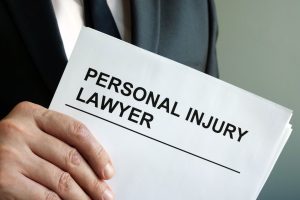The legal process is vexing for most people. A Fort Lauderdale personal injury lawsuit is no different – especially because you’re navigating it all after just emerging from a traumatic incident such as a car accident, medical malpractice, or hazardous conditions/violence on someone else’s property.
Most people aren’t experts on insurance coverage, liability, and the rules of litigation. And hopefully, this is the only time you’ll ever have to go through it. But knowing the steps of how the Florida personal injury claims process works can help ease some anxiety about what to expect. Your personal injury lawyer – who is not paid upfront, or at all unless you win – can break it down even more clearly based on the facts of your case.
If you’re asking, “What are the steps of a Florida personal injury lawsuit?” We have answers.
“It Depends”
Everyone hates this lawyerly answer.
But we must start with it as a caveat because the steps of your Fort Lauderdale personal injury lawsuit depend on a few factors. A Broward medical malpractice injury lawsuit is going to be much more involved and have many more steps compared to a Broward car accident lawsuit.
What we can say is that regardless of the type of injury claim you’re filing, it can be settled at any time (as opposed to going to court). In some cases, it’s not even necessary to file a lawsuit to get a fair settlement. Defendants that recognize their wrongdoing right out of the gate may be eager to put it behind them. And insurers also have a duty to act in good faith, meaning there is some incentive to settle solid claims quickly and fairly. Working with a skilled personal injury lawyer is the best way to facilitate a fast and fair Florida personal injury settlement.
Basic Steps of a Florida Injury Lawsuit
While the steps may vary slightly depending on the specifics of your case, claimants in Fort Lauderdale personal injury lawsuits can generally expect the following:
- Investigation
- Pre-suit demand and settlement negotiation
- Filing the lawsuit
- Discovery
- Trial
- Appeal/post-trial motions
Settlements, which is how 95% of injury claims are resolved, are often ideal because they minimize litigation (lawsuit) costs. Again, a claim can be settled at any point. We could be in the middle of trial, and the claim could be settled.
The key is to ensure the claim is reasonable. Accept a low-ball offer, and you’ll be stuck with it – even if your actual losses end up being much higher. Reject a fair offer, and you could end up reducing your payout if the verdict at trial ends up being within 25% of that offer. A Fort Lauderdale personal injury lawyer can help you figure out what’s fair and what isn’t.
Investigation 

The first step in any Florida injury case is investigation.
After the consultation and agreement to accept your case, your injury lawyer will want to review your medical records, witness statements, accident/incident reports, insurance policies, surveillance footage, etc. (If you can bring this to your first meeting with your attorney, even better. Reduces your overall attorney fees.)
Investigation allows us to assess liability (who was at fault), damages (how much you should be paid), and insurance (who is going to pay).
Pre-Suit Demand and Settlement Negotiation
Once we’ve gathered and reviewed all relevant information, we’ll bring our recommendation to the client about whether we should advance with a claim and if so, for how much. Once the client agrees, we submit these demands to relevant insurers or other parties. They have a certain amount of time to respond. The insurer may counter our offer. They may reject it outright. Or they may pay it.
If they reject or counter the offer, this kicks off the settlement negotiation phase.
Filing the Lawsuit
If the claim isn’t resolved in a timely and fair manner through this negotiation, then we file a lawsuit.
Discovery
Discovery is an initial phase of litigation (the process of a court handling your case). Lawyers from both sides get to review all the records, request the other side produce whatever evidence it has, question witnesses, discuss the case with experts, request independent medical exams, etc.
This gives everyone involved a clearer picture of what’s going to be presented at trial. That can compel the other side to settle – or gear up for a fight in court.
Mediation may be done after discovery/before trial – with the goal of hopefully reaching a settlement without the need for trial.
Trial.
It’s rare a case actually goes to trial. However, sometimes we have no choice if the defendant/their insurer refuses a reasonable settlement.
Cases get presented to a jury, witnesses are called to testify, evidence is presented, and the judge oversees the proceedings and makes sure the law is followed. The jury has the last word.
Appeal/Post-Trial Motions.
About that last word – it might not actually be the last word. Because there’s still a chance for post-trial motions and appeals. If one side thinks the procedure was unfair or the law wasn’t followed as it should have been, they can ask the trial court to reconsider in a post-trial motion. If that fails, they can proceed with an appeal.
Call a Fort Lauderdale Personal Injury Lawyer
Note that this step-by-step plan is just a guide. Your circumstances may mean things go a bit differently. Working with an experienced personal injury attorney helps ensure you are informed every step of the way.
Call Fort Lauderdale Injury Attorney Richard Ansara at (954) 761-4011. Serving Broward, Miami-Dade and Palm Beach counties.
Additional Resources:
Personal Injury – The Florida Bar
More Blog Entries:
3 Ways Florida Child Injury Lawsuits Are Different From Adult Filings, March 4, 2024, Fort Lauderdale Personal Injury Lawyer Blog
